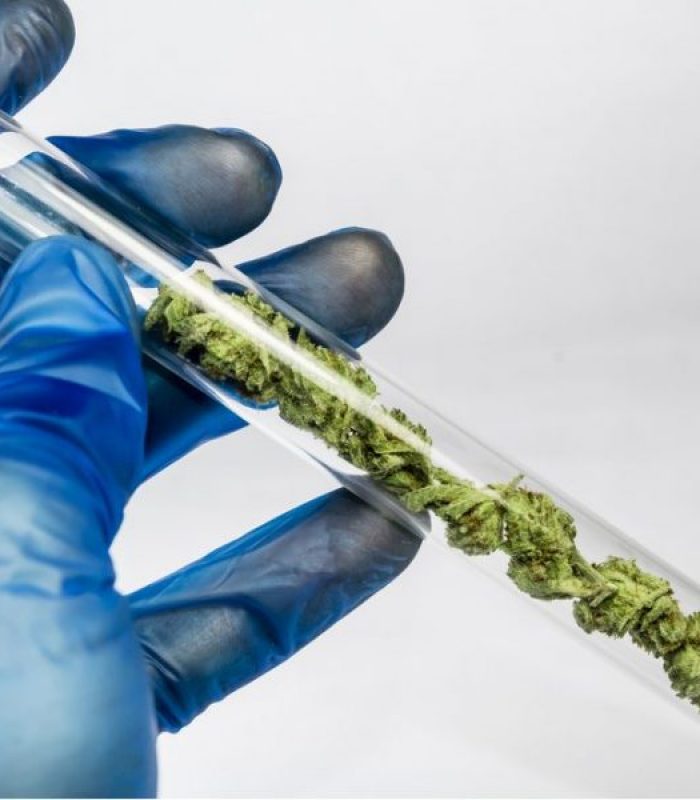Experts are now looking at patients that take high CBD cannabis oil and CBD extract as potentially impaired drivers.
As prohibitionists lose ground to sensible cannabis reforms, they cling to new arguments in support of their misguided cause. Before, they told cannabis causes cancer and brain damage. But, the public has untangled those old, silly claims. Now, prohibitionists are rallying their ilk to a new argument: that drivers who use cannabis are impaired dangers on the road. And that includes CBD.
Currently, most places with legal cannabis still have laws against “drugged driving.” Although evidence indicates THC doesn’t increase the frequency of car wrecks, CBD hasn’t really been tested. That’s because, as we all know, CBD doesn’t get anyone intoxicated.
Intoxication, however, shouldn’t be confused with psychoactivity. True, no one gets high from CBD, but that doesn’t mean CBD doesn’t still have an effect on the mind. If it didn’t, CBD wouldn’t be recommended for treating anxiety, PTSD, depression, mood disorders, or a host of other cognitive conditions. Furthermore, CBD hasn’t been extensively tested against driving ability – but does that mean we should think twice before taking some hemp oil prior to getting behind the wheel?
CBD May Affect Driving More Than We Think?
Maybe. One 2018 paper suggests CBD combined with low doses of THC could result in impaired driving ability, particularly the ability to control acceleration. Maintaining safe speeds and accelerating in a controlled, precise manner are features of good drivers. Bad drivers will gun their engines and exceed speed limits when they think no one’s looking. The paper, titled “Correlates of cannabinoid concentrations, real-world driving, and driving-related skills” hasn’t been peer-reviewed and appears to be a work-in-progress, so take its findings with a pinch of salt.
The paper’s author, Mark B. Johnson, did not respond to RxLeaf for comment, but we can take a look at the study ourselves. [Author’s note: Johnson did respond after this post went live. Scroll to the bottom to check out his two cents.]

How Was the Impairment ‘Experiment’ Done?
“Correlates…” is not an experiment. This was an epidemiological study. In other words, Johnson didn’t administer controlled amounts of THC or CBD to subjects, have them drive around on the same race course, then record his observations. Nor did he administer placebos to a control group. Rather, instruments were fitted onto some three dozen subjects’ vehicles to record driving behavior. Serum analyses and self-report surveys assessed who was taking CBD and who wasn’t. Compile millions of data points, run a few hypothesis tests, and voila, you’ve got a conclusion.
Second, about the data. What Johnson said he discovered was threefold. One, CBD alone doesn’t seem to affect driving behavior. This holds true for THC alone as well, just in case you thought Johnson was some low-key prohibitionist. (He’s not, as far as I could tell.) However, when higher amounts of CBD are coupled with lower amounts of THC, he detected impairment. Namely, drivers didn’t have as much control over how they sped up or slowed down, and they tended to drive above speed limits more often than not.
Does that necessarily mean CBD equals car crashes? I would say: No. But it does warrant further study.
To Johnson’s credit, he never writes that there should be a ban on CBD, or that drivers should never consume CBD. He even gives a nod to Ethan Russo’s claim that the terpene myrcene is largely responsible for cannabis’s sedative effects. To which Johnson writes,
“even as a proxy variable, CBD may be useful in distinguishing cannabis that produces sedating versus euphoric experiences. This research does not attempt to make causal pharmacological claims—it only attempts to improve prediction by measuring and modeling CBD in addition to THC.”
THC Alone Can’t Cause Impairment – Something Else is Happening
And Johnson continues:
“Described herein are three studies that provide preliminary evidence that THC alone is insufficient to predict driving impairment, and an investigation of compounds other than THC is needed to better explain the public health risks of cannabis use.”
In other words, Johnson’s saying we can’t just dose people up on THC and expect to understand how cannabis affects driving ability – which is something a lot of researchers have done in the past, not just with driving, but with all manners of activities. Instead, we must take an ensemble-effect approach to researching cannabis, and we should always assume other phyto-compounds are working in conjunction with THC.
Were there problems with this study? Of course. There are problems with every study. On that note, a single study does not automatically contradict the body of knowledge that precedes it, either. The keys to scientific investigation are reproducibility and replication of results. “Correlates…” is certainly reproducible. However, since no one has repeated Johnson’s experiment, it’s a curious finding, not an open-and-shut case.
Cannabis: Still Safer Than Alcohol?
Speaking of a “body of knowledge,” what does science say about cannabis and impaired driving?
Obviously, getting blitzed out of your mind is going to result in impaired ability to drive. It’s probably going to impair your ability to do anything. Yet we don’t really hear about stoned drivers causing traffic fatalities probably because cannabis doesn’t entirely impair our common-sense judgment, unlike alcohol. A 2005 study in the Journal of Analytical Toxicology found higher levels of cannabis intoxication “matched…a significant decrease in the willingness to drive.” One way to interpret that is cannabis consumers know when they’ve had too much. Another interpretation is that stoners are too lazy to drive (just kidding).
More recently, a Norwegian study published in April concluded that Sativex (a pharmaceutical THC+CBD spray) didn’t compromise a driver’s ability to control a vehicle. In 2016, the American Automobile Association (AAA) released a series of studies that found no significant connection between blood levels of THC and auto accidents in Washington state. In fact, that same year, an American Journal of Public Health study discovered traffic fatalities went down in medical marijuana states, ranging anywhere from 8 to 16 percent reduction of traffic fatalities after cannabis law reforms.
Same Shift, Different Day
So why is impaired driving under cannabis such a central feature in the legalization debate? Why are states and other municipalities passing laws that set ridiculous 2 to 5 ng/mL THC limits in drivers?
One reason may be this slogan: “Regulate cannabis like alcohol.” It’s one of my least favorite, personally, because alcohol and cannabis have nothing in common. Sure, setting the legal age to consume at 21 is sensible enough, but these are two entirely different substances that work on entirely different chemical pathways in our body. We want to roll out legalization in a responsible manner, so of course we want to play it safe. Let’s just not do it in a stupid fashion.
Another reason is manipulation of numbers. This is a favorite of prohibitionists in Colorado, who’ve run out of ideas after the sky didn’t fall after legalization in 2014.

Image Credit: via c-span.org
The New Prohibitionists
Jeff Hunt is one of those prohibitionists. He’s the director of the Centennial Institute, a conservative Christian think tank, and he has popularized the misconception that legal cannabis has caused a massive spike in traffic fatalities in Colorado. It’s a clever claim, too. Yes, it’s true that Colorado’s law enforcement has detected greater numbers of drivers with THC in their systems. And yes, it’s true that Colorado’s traffic accidents have gone up since 2014, the year we launched adult-use sales.
But wait for it. There’s a catch. Or two, to be precise.
Catch number one is that THC detected in a driver’s blood does not indicate impairment. As most of you know, THC is fat-soluble. This means our fat cells store it for weeks, if not months, at a time. As fat cells burn up to provide us energy, they leak some of that THC into our fluids, like our blood and urine. With THC limits set at 5 ng/mL, it’s possible to come up positive days after toking – long after the high has worn off. If you don’t believe me, check out this article.
Catch number two is that Jeff Hunt, frankly, is flat-out wrong. At best, he’s being ignorant. At worst, he knows he’s manipulating these numbers. Yes, traffic incidents have gone up in Colorado for four years running. But they’re still not as high as they were in 2002, when we had no recreational pot shops. (We did have medical cannabis since 2000, but we didn’t have dispensaries until the mid-2000s.)

Adding Up The Traffic Fatalities
So how is it that we had more traffic fatalities in 2002 than we did in 2014, 2015, 2016, and 2017? I don’t know. But I will argue that the increase over the past four years has more to do with Colorado’s swelling population than it does with stoned driving.
What Jeff Hunt and his supporters fail to mention is that Colorado experienced a boom of folks moving in. And, to that extent, yeah, cannabis is partially responsible. But with more people means there are more cars, and more cars means a higher probability of traffic fatalities. Duh.
Of course, the verdict is still out on traffic fatality data in states with legal pot. Statisticians like ten years’ worth of data before drawing conclusions about anything. For right now, the evidence seems to indicate that cannabis and driving impairment don’t necessarily go hand in hand.
Basically, be safe. Be responsible. And if you must drive somewhere while medicated, find a buddy to take you instead.
Afterword: Study Author Chimes In
Mark Johnson, the author of the CBD paper, did respond to RxLeaf in an email. Here was his advice to CBD patients who drive:
“I think people should be careful not to confuse intoxication with impairment,” he wrote. “Just because something is not intoxicating does not mean it is necessarily safe when it comes to driving. For example, there plenty of medications that have a driving warning because they cause sleepiness or grogginess. Drowsiness really is a driving risk, so if you are using something that sedates you, it probably interferes with your ability to drive safely.”
He also noted that his study isn’t the final word on CBD and driving impairment. More work is necessary.
“People should not put too much stock into one study,” he continued. “Even though I did three studies, still, there needs to be more, broader research. This ‘proof-of-principle’ type research really should (ideally) stimulate additional research.”
Johnson is currently working on locking down more funding for further study. Future investigations, he wrote, will take into account users’ tolerance levels. They’ll also look at the strains, and other variables that previous studies did not include.






